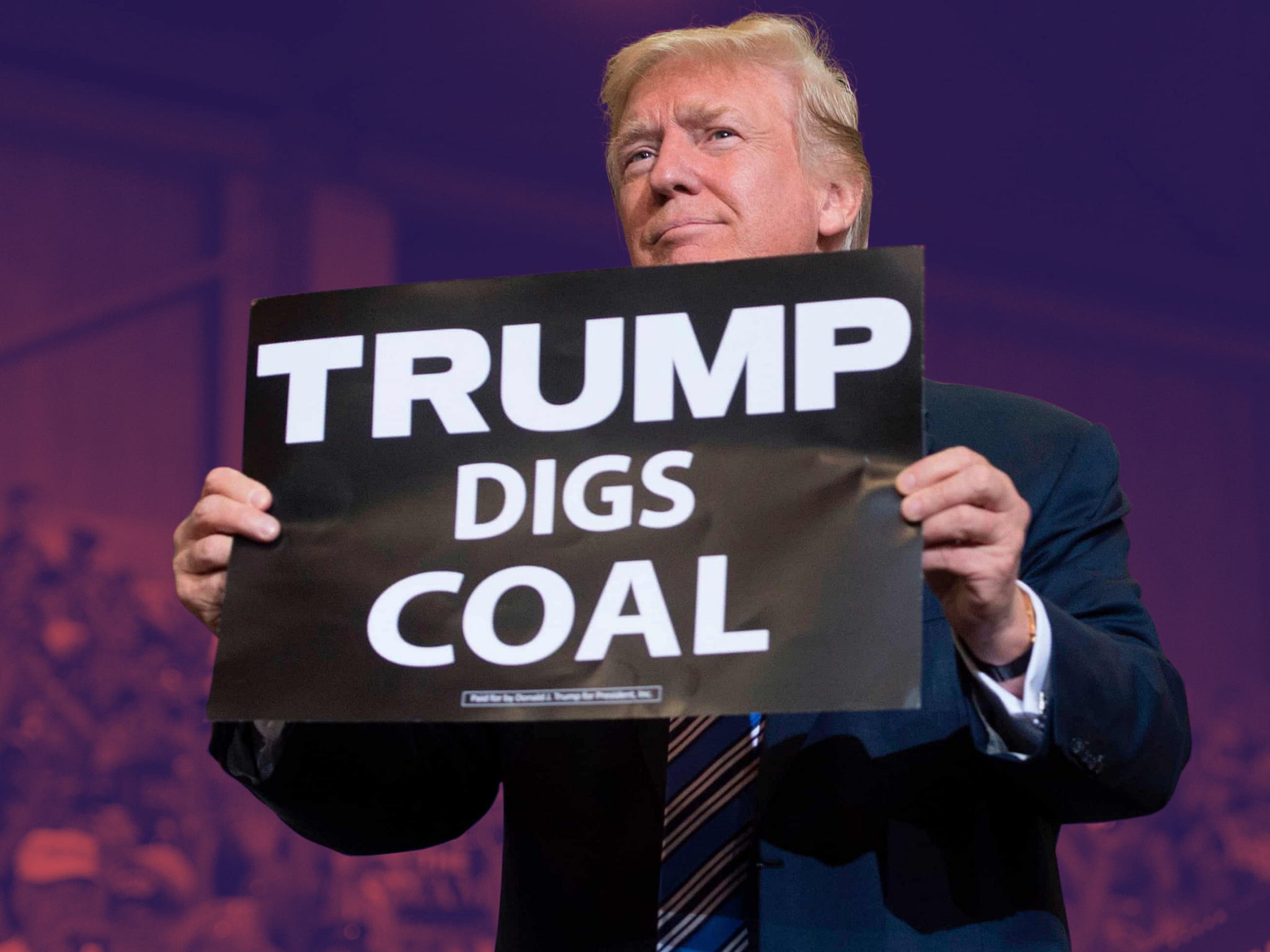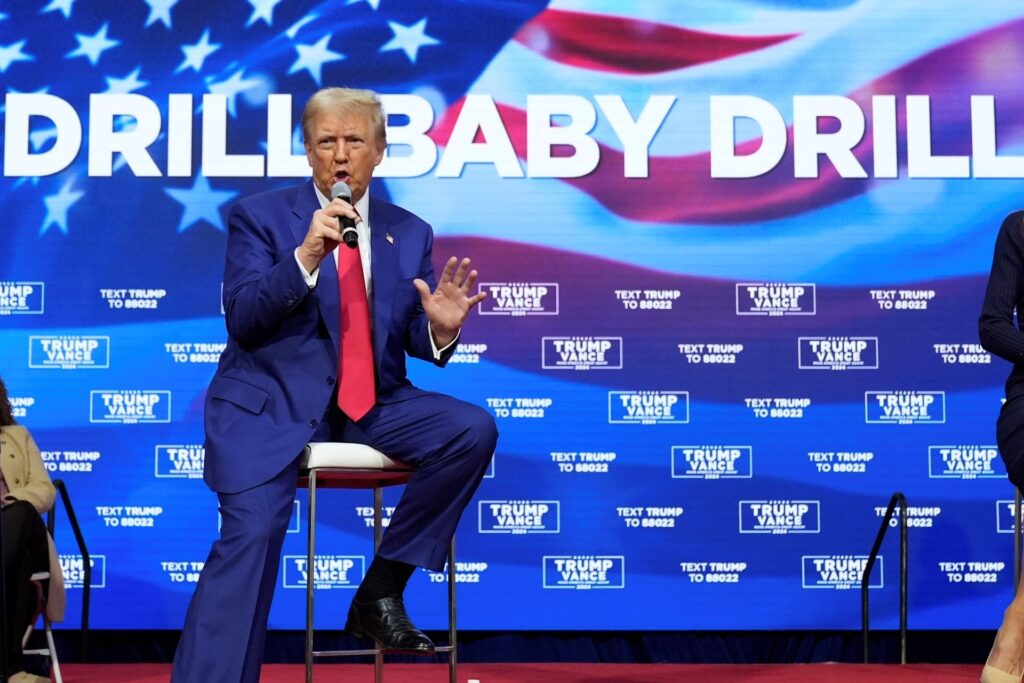
Governments and corporations have intentionally spread climate misinformation to block environmental action and diminish public trust, with Donald Trump identified as a key influencer.
Conspiracy theories and misleading information are undermining people’s trust in climate science and justifying stakeholders’ inaction, according to a new report.
“Climate misinformation is being amplified by institutions with the power to shape narratives and suppress inconvenient truths. As long as these actors continue to manipulate the flow of information, the prospects for effective and equitable climate action will remain dangerously out of reach,” said Ece Elbeyi, a consulting scientist at the International Panel on the Information Environment (IPIE) and lead author of the report.
Elbeyi and her colleagues comprehensively reviewed 300 studies and found that powerful stakeholders – such as governments, corporations and fossil fuel producers – “intentionally spread inaccurate or misleading narratives” about human-caused climate change. “The result is a decline in public trust, diminished policy coordination, and a feedback loop between scientific denialism and political inaction,” they wrote.
The IPIE found a “severe gap in research” on climate information integrity in the Global South, which faces the worst impacts of the crisis.
“The integrity of climate information is under systemic attack and this is not an accident,” said Sebastian Valenzuela, chair of the IPIE’s Scientific and Methodology Committee. “When trusted institutions – corporate, political, and media – become the engines of falsehood, they weaken our ability to act in the public interest.”
Trump a ‘key influencer’ driving climate lies

One of the key disseminators of climate misinformation, as you’d expect, is the fossil fuel industry. With the highest carbon footprint of any sector, these companies have engaged in a “dual deception” of the public, employing diverse techniques to deny the reality of climate change on the one hand, and deploying greenwashing to portray themselves as sustainable businesses on the other.
Legacy media and social media have both “failed the public” in terms of climate information, the authors said. Conservative or right-wing outlets “give priority to and amplify denial, scepticism, and conspiracy theories regarding climate change”, and social media bots and trolls promote denialist discourse. In the US, nine out of the 10 top online shows are right-leaning and climate-denying.
IPIE pointed out how governments like Russia and right-wing political parties – from Vox Party and AfD in Europe to the Republican Party in the US – have magnified climate denialism and misinformation. Separate research shows that nearly a quarter of Congress members in the US last year were climate deniers, and all Republican. Public surveys have found that only 14% of red voters feel threatened by the climate crisis.
So it comes as no surprise that IPIE named President Donald Trump as a “key influencer” for climate misinformation, as his “logical fallacies, unfounded claims, and cherry-picking of findings were heavily retweeted by other users”. In fact, close to a quarter of the tweets related to his announcement of the US withdrawal from the Paris Agreement originated from bot accounts, deepening the links between social media, right-wing politics, and climate misinformation.
Aside from the media, a third stream of communication includes “corporate sustainability reports and closed exchanges between business interests and policymakers”. Together, these channels “enable elites to serve short-term economic and political gains” at the expense of the public’s long-term interests.
Misinformation shifts from denial to scepticism

The researchers found that strategies of climate misinformation are shifting from outright denial to “strategic scepticism”. Campaigns now seek to discredit the efficacy, costs, or fairness of proposed climate solutions.
While scepticism recognises that the climate crisis exists, it “muddies the waters of the information environment, changing the topic of climate change and confusing the scientific issues of cause, effect, and remedies”. Again, the most prominent employers of this tactic are the fossil fuel industry, populist right-wing movements, and alliances of businesses and policymakers that are supported by conservative think tanks and charities.
Policymakers are, in fact, a key target of misinformation. Much of the information funnelled by powerful interests into public institutions is “incorrect and unreliable”, and the sources of this misinformation – from industrial lobbies to “scientific hired hands” – typically fall outside of public scrutiny. IPIE suggested that lawmakers are subject to partisan policy briefs and greenwashing campaigns from businesses.
All this misinformation has a tangible impact on public trust. Conspiracy theories fuel disillusionment and make citizens sceptical of both the institutions and their own ability to contribute to change. “Economic and political elites promote climate scepticism, which feeds public opposition to climate policies. This, in turn, feeds back into the policy arena and negatively impacts policy development and decision-making,” the authors explained.
Polling shows that affluent nations like the US, Australia and Germany tend to have higher rates of climate scepticism, despite being more environmentally literate. But one of the largest-ever global climate surveys found that 53% of people were more worried about the climate crisis in 2024, and over two in five blamed their governments as the main culprit.
However, less than half said their nations are doing well to tackle climate change, and a quarter thought the opposite. In fact, 80% of consumers believe their country should strengthen their climate commitments.
In another large poll of 130,000 participants from 125 countries last year, 89% of people said they wanted to see more political action to fight the climate crisis.
How (and why) to battle climate misinformation

“We are dealing with an information environment that has been deliberately distorted. When corporations, governments, and media platforms obscure climate realities, the result is paralysis,” said Klaus Jensen, a professor at the University of Copenhagen and chair of the IPIE. “Addressing the climate emergency therefore demands not only policy reform, but an unflinching reckoning with systems that spread and sustain falsehoods.”
The researchers identified four potential avenues to repairing climate information integrity. They called for legislation and regulation that mandate standardised emissions reporting by corporations and public institutions, and transparent content labelling procedures on social media.
Litigation, both by state and non-state actors, against entities engaged in greenwashing and misleading practices is needed to enforce the standards ensuring access to accurate information.
Coalitions of citizens, local communities and civil society organisations, meanwhile, can help counterbalance the alliances of the economic and political interests that disseminate misinformation and block climate action.
And finally, there’s a need for greater science and media literacy for citizens and policymakers alike, who are “special targets of misinformation”, according to the report.
The IPIE assessment comes a week after the UN’s special rapporteur on human rights and climate change, Elisa Morgera, urged governments to “criminalise misinformation and misrepresentation by the fossil fuel industry”. She echoed secretary-general António Guterres’s comments last year, who called oil and gas producers “the godfathers of climate chaos” and called for an advertising ban on them.
The UN itself is leading the Global Initiative for Information Integrity on Climate Change, which aims to bolster countries’ efforts in fighting climate misinformation.
These efforts are more important than ever, as the world’s fight to keep post-industrial temperature rises under 1.5°C by 2100 hangs in the balance. Researchers have warned that the world only has two years of its carbon budget left, after emissions reached a record high in 2024.
“If we want meaningful climate action, we must first address the machinery that is manufacturing confusion,” said Frederik Ogenga, an IPIE member. “Our response to the climate crisis begins with restoring credibility to the information systems we all rely on.”
The post Governments Spreading Misinformation to Fuel Climate Denial & Inaction: Study appeared first on Green Queen.
This post was originally published on Green Queen.